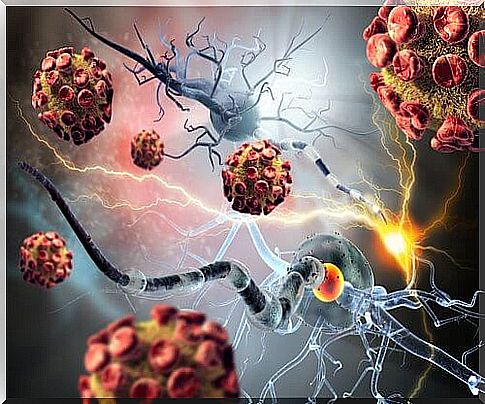Cancer Vaccines: Scientific Advances

In this article we tell you about the scientific progress regarding cancer vaccines, the results obtained so far and other interesting information about them.
Over the years, cancer has become one of the main objects of study by medicine, which seeks a cure for this disease whose mortality rate is very high. Obviously this varies according to the type and spread of the cancer.
Cancer specialists define cancer as the production of abnormal cells that do not adapt to normal biological processes and that, not dying, reproduce in an uncontrolled manner. How? Disseminating in the body and forming internal masses, called tumors.
Today we are going to tell you about cancer vaccines.
A cancer vaccine?

There are many positive advances in medicine in the fight against cancer. These concern the diagnosis, the specific characteristics of each form of cancer and the possible treatments, which awaken the hope of patients who are struggling to survive this disease. The whole society aspires to achieve ever higher life expectancy.
Knowing the different types of cancer has allowed scholars to specialize in the evolutionary processes of the same and in the effects it causes on the body, resulting in the development of different treatments that, day after day, are perfected and become more and more effective.
Among the scientific studies that focus on a definitive cure for this disease, we find the development of medicines that act in the form of vaccines.
For the moment, there is no talk of traditional vaccines to be given to newborn babies to prevent the appearance of certain diseases, but the purpose is similar.
Scientists from Stanford Medical School (California, United States) tested the vaccine on guinea pigs that had previously had cancer cells implanted.
The results obtained show the destruction of the tumors and the disappearance of the metastases in the organism of the animals. All of this is reported in the journal Science Translational Medicine .
How do cancer vaccines work?

In the case of tumors, the application of the vaccine would be direct. This would contain immunostimulants, in order to activate the immune defenses that destroy (from the inside) the tumor and block the abnormal reproduction of cells.
The composition of these anticancer vaccines corresponds to two agents: one is a DNA fragment, called CpG, the other is an antibody against the cell of the immune protein OX40.
The combination of these two elements made it possible to destroy the tumor in 87 out of 90 guinea pigs; in the three specimens that returned the tumor, a second dose of the vaccine was able to reverse it.
Ronald Levy, a researcher at Stanford University, expressed his optimism for the results obtained on the guinea pigs. In fact, in most cases, the tumors have been destroyed; the efficacy of tumor vaccines was visible in breast cancer, melanoma and lymphatic cancer.
Effects of anticancer vaccines on humans

This scientific advancement with direct immune action on cancerous tumors is still being tested on laboratory guinea pigs, and has not yet been tested on humans.
Specialists predict a positive landscape regarding the effects of cancer vaccines compared to much more aggressive treatments, such as chemotherapy.
From the studies, it was deduced that:
- Cancer vaccines can minimize the unwanted effects of traditional treatments, as it is a less invasive technique.
- The time to check the results will be reduced, since the action of the vaccine on guinea pigs was visible after ten days of application.
- It would represent an affordable option for patients.
- It has a higher range of action, as it not only attacks the tumor but also pushes the T cells (immune cells) to act against the malignant ones.
While waiting for this new alternative to be made available also for humans, we remind you that the research laboratory to which Dr. Levy belongs has already been awarded the creation of rituximab. It is a monoclonal antibody approved for administration as an anticancer treatment.









